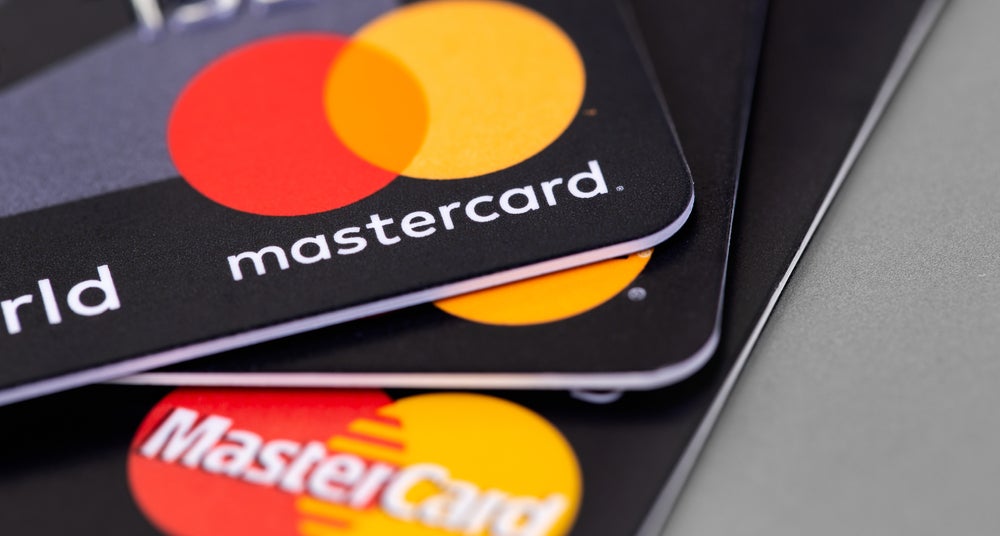As the Christmas spending
period starts in earnest, Louise Naughton looks at some of the
consumer research conducted in recent weeks, and finds the ‘buy
now, pay later’ culture that used to come into its own over the
festive period has been replaced with consumers keeping a close eye
on Yuletide costs.
The countdown to Christmas has well
and truly begun. Festive lights and decorations adorn high-streets
around the world to get consumers into the Christmas spirit and get
them spending.
 And with the global
And with the global
economic crisis still ringing loudly in consumers’ ears, the
increasing trend of turning to debit over credit is predicted to
continue in this holiday season. The ‘buy now, pay later’ culture
that used to really come into its own over the Christmas period has
become associated with the negative perceptions of spending beyond
your means, as well as having suffered from more recent
restrictions in accessing credit.
An poll by the National Foundation
of Credit Counselling (NFCC) found 70% of US consumers will pay in
cash for their holiday purchases this year. The poll also showed
10% of the 4,814 respondents plan to charge purchases to their
credit cards but will pay the bill as soon as it arrives. Only 9%,
said they will charge purchases to credit cards and pay for them
over time.
How well do you really know your competitors?
Access the most comprehensive Company Profiles on the market, powered by GlobalData. Save hours of research. Gain competitive edge.

Thank you!
Your download email will arrive shortly
Not ready to buy yet? Download a free sample
We are confident about the unique quality of our Company Profiles. However, we want you to make the most beneficial decision for your business, so we offer a free sample that you can download by submitting the below form
By GlobalDataSmarter ways to
pay
“Consumers are opting for smarter
ways to pay for their holiday expenses,” says NFCC spokeswoman Gail
Cunningham.
Another survey conducted on behalf
of Green Dot, the US prepaid financial services company, also found
the majority of Christmas shoppers are shunning credit cards. 69%
of those surveyed said they plan to primarily use debit cards,
cash, cheques, prepaid and gift cards to pay for gifts this
year.
Furthermore, 25% of consumers who
used credit cards last year said they are less likely to use credit
cards this year, with 1 in 10 not planning to use them at all.
Last month Citi also revealed
findings from a US survey that indicates holiday spending will
decrease across all income levels. Research conducted by Hart
Research Associates found 45% of US consumers expect to spend less
than they did last year, 47 plan to spend the same and 7% intend to
spend more.
According to the research
commissioned by Citi, nearly half of US consumers are either
‘almost certainly’ or ‘very likely’ to cut back on the cost of
gifts they give this year and over a third plan to cut back on the
number of people they give gifts to, finding more creative ways to
save money. One in five plan to spend under $200 this year and one
in four will give homemade gifts.
“With the unemployment rate still
over nine%, many families continue to throttle back their
spending,” said Jonathan Clements, director of financial education,
Citi Personal Wealth Management. “Sixteen months into what we are
told is economic recovery, Americans are rediscovering financial
prudence.”
The American Express (Amex)
Spending and Saving Tracker gives retailers some better news. It
found the average American will spend $710 on gifts this year, with
that figure doubling to $1,384 among those who earn over $100,000 a
year.
The gender divide was present, as
ever, with 100% of women surveyed planning to hit the stores while
12% of men revealed no shopping plans.
Sixty-four percent of US
consumers will pay via cash or cheque with 32% planning to charge
to credit cards and repay immediately thereafter. According to the
Amex survey, some consumers will fund their holiday expenditure in
a variety of creative cost-cutting ways. 13% said they will use
rewards points and 12% plan to pay with gift cards.
UK consumers appear slow to get
into the Christmas spirit. Last month Visa Europe reported a 0.3%
dip in total spending across its 91m debit, credit and prepaid
cards when compared to the same point in 2009.
In its first Christmas Spend
Tracker published on 10 November, Visa reported a £7bn ($11bn)
spend across its products for the week ending 7 November. This
figure had fallen by 5.7% when compared to the previous week ending
31 October, where total spend reached £7.4bn. The same week also
saw the average transaction value drop by £0.87 to £48.53.
“Our spend data suggests that many
consumers have not yet geared up for Christmas shopping and may be
planning on saving most of their gift buying until a little later,”
said Visa Europe commercial director Dr Steve Perry.
Online spending may be the UK’s
saving grace this Christmas, as it continues to mount a real
challenge to the dominance of the high-street. An e-retail sales
index compiled by e-retail membership organisation Interactive
Media in Retail Group (IMRG) and consulting firm Capgemini,
predicts UK consumers will spend £6.4bn online this December – up
16% from last year.
Staying on
budget
With consumers all over the world
striving to stay on budget, prepaid cards are also emerging as a
strong contender to the traditional payment methods this Christmas
season. Industry analysts, the Mercator Advisory Group, estimates
load volume for open-loop prepaid cards will grow by 36% per year
to reach over $421bn by 2013 in the US alone.
The Credit Card Accountability,
Responsibility and Disclosure Act, which came into effect in the US
back in February this year, means gift cards will become more
consumer-friendly this Christmas. Under the Act issuers are banned
from charging inactivity fees unless the card has been dormant for
a full year and gift cards cannot expire in less than five years.
Issuers are also barred from charging a fee to replace a lost or
stolen card.
The surveys and online polls
conducted by various outlets were designed to focus consumers’
minds on shopping at the start of the festive season. However, due
to the conflicting results, it is difficult to predict what way
consumers will turn this Christmas.
One constant across the research is that consumers are more
economically savvy than they once were and as such will be keeping
a close eye on their spending this Christmas.







